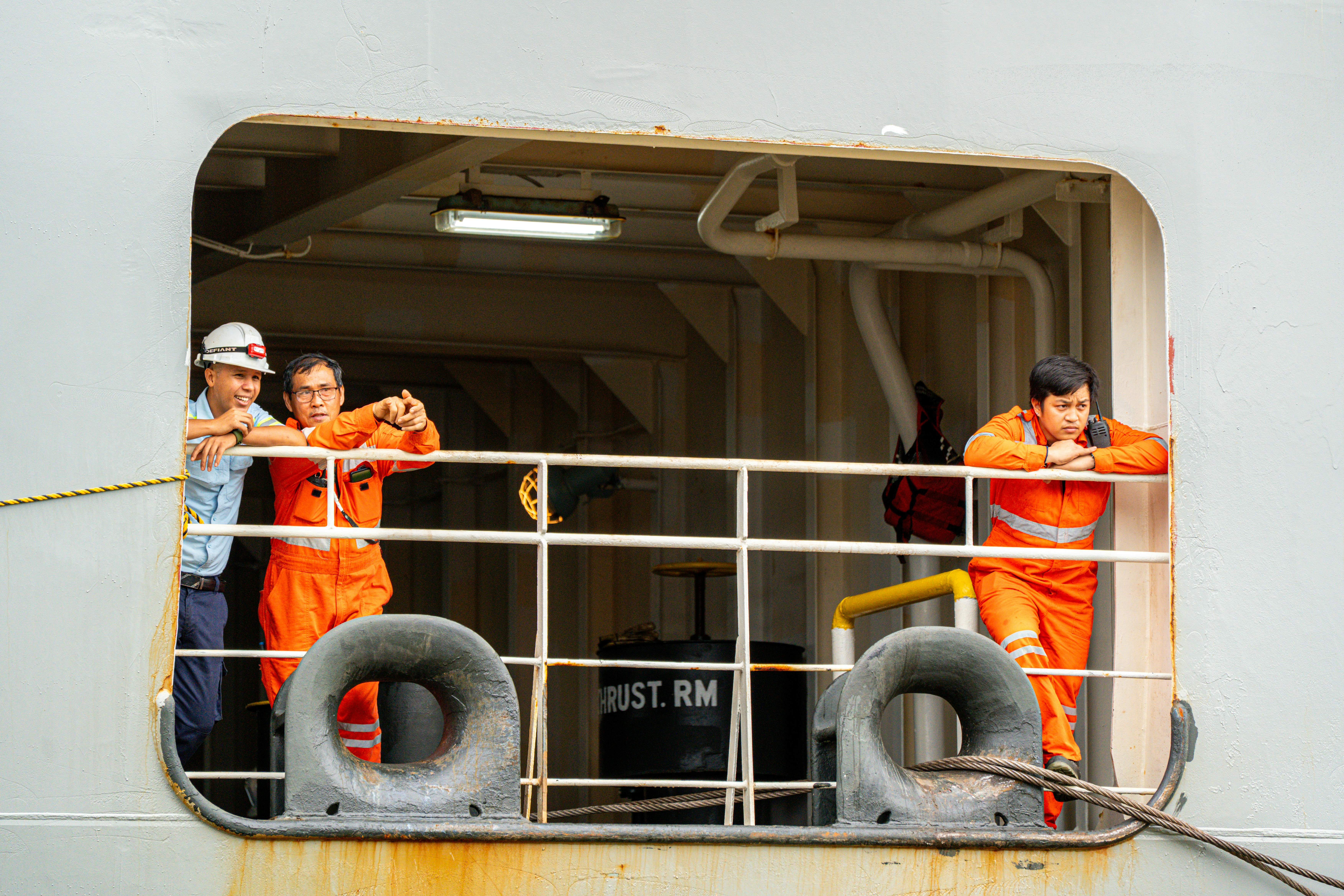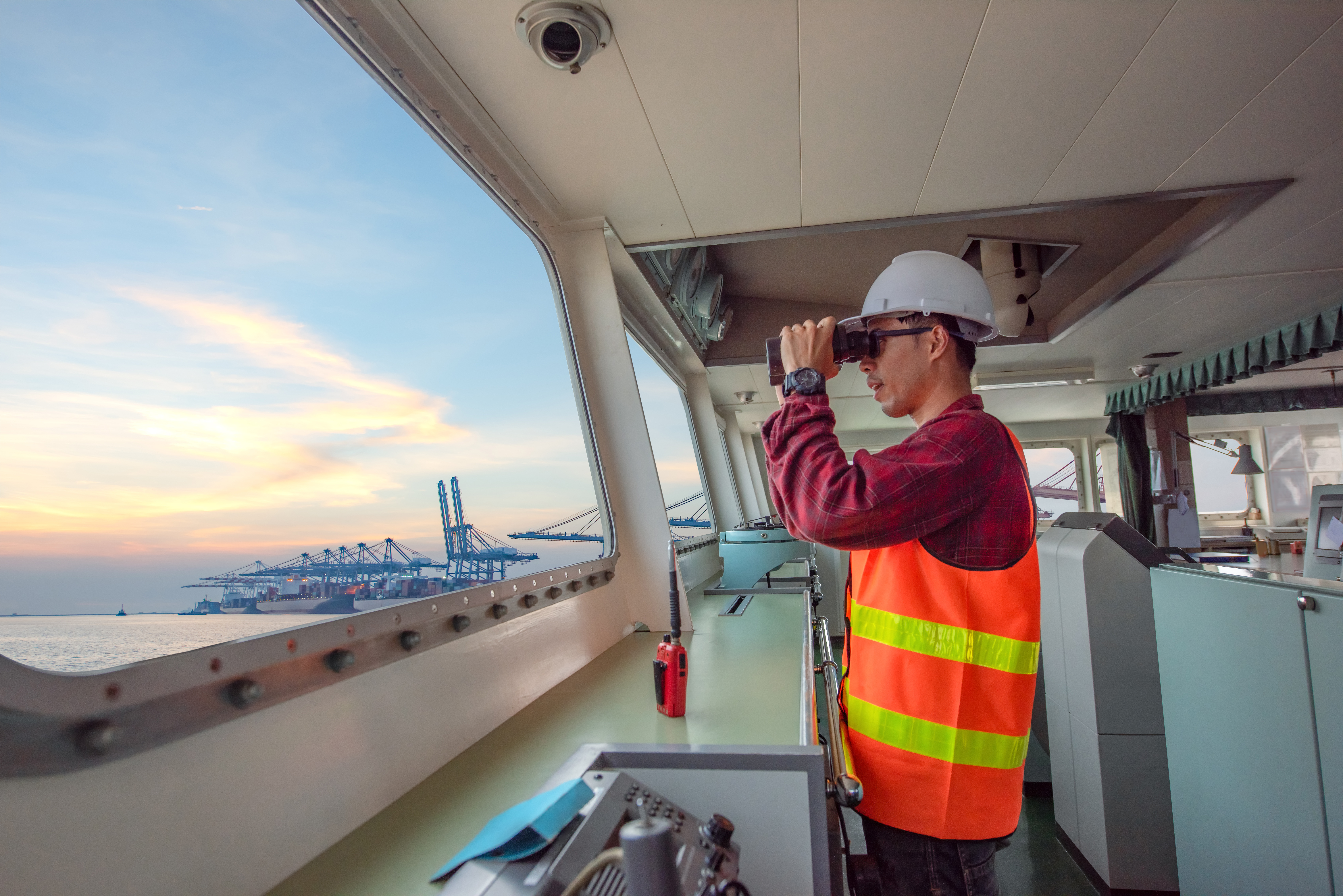An industry veteran warns of a global crewing crisis, fading seafarer welfare, and what it will take to steady the industry
By John Ioannou
I am considered a ‘subject matter expert’ in Maritime HR, a title that conveys mastery and gives clients confidence that they are in capable hands. Privately, I feel it is a misnomer. Whilst I do have a lot of knowledge and experience and have dealt successfully with many challenges over the years, I feel more like a student of the game; constantly learning, and very often surprised by new experiences that force me to reconsider my established thought processes. Despite all this, ‘expert’ does pay a lot better than ‘student’, so I need to keep my imposter syndrome in check if I am to continue paying the bills.
One thing I do know is that my sector is a mess. We do not have enough qualified personnel to run the world’s shipping fleet, and experienced, well-educated seafarers are abandoning the profession to be replaced by less educated crew from developing nations. Yet the demands on those who remain continue to escalate, leading to a crisis on board where seafarers are exhausted, marginalised and exploited. Overwork is endemic, with crew clocking in 90-hour weeks and rest hour reports routinely falsified. Loneliness and isolation are rife, as ships increasingly dock at remote private terminals far from anywhere. Seeing the world was once a perk of life at sea, but a recent report by the ITF Seafarers’ Trust showed that a quarter of seafarers surveyed said they did not get any shore leave at all during the entirety of their contract, and those that did only managed less than three hours. Moreover, the pandemic left seafarers abandoned on board for months, uncertain as to when they might go home. Unsurprisingly, many have left the industry for good.
For those who choose to remain, suicide has become a leading cause of death. Gard, a prominent maritime insurer reports that suicides surpassed fatal accidents during 2024 with one in five seafarers contemplating ending their life and one in four living with chronic depression or anxiety.
This is mirrored ashore as crew managers struggle with a disengaged workforce and quickly burn out trying to hold it all together. It’s a lose-lose situation all round.

So how did we get here? The crewing crisis reflects powerful trends in the maritime industry where higher costs drive acquisitions and mergers that absorb traditional family-run firms into private equity-funded mega-managers. The focus has shifted from building something genuine and durable to maximising investor returns. It’s a depressingly familiar scenario playing out across many sectors in western economies, and one that often leaves workers feeling marginalised and disengaged.
Beginnings
I was fortunate to begin my career in a family-owned shipping firm where the message was simple: we are here to build a first-rate company, work hard and have fun. That was it. There was no need for contrived mission statements or an artificial culture imposed by HR. When times were tough the owners protected their people and doubled down on their vision: together, we will weather the storm and come out stronger.
Their commitment inspired their middle managers and as a trainee I benefitted from two great mentors, both ex-captains who had come ashore to work in Limassol’s burgeoning ship management sector. One was from East Germany and educated in the excellent nautical schools of the former eastern bloc. He was reflective and a big-picture thinker, deeply committed to building a world-class training programme that eventually filled 80 per cent of our senior positions with former entry level cadets who had been carefully promoted up through the ranks.
The other was a bullish West German, tough and demanding but forgiving of mistakes if he felt you were loyal and your intentions were good. He designed a strategic crewing plan that returned a retention rate of 99.6 per cent – almost unheard of in the industry – and laid solid foundations that saw us survive multiple crewing crises relatively unscathed.
How did we do it? We were not market leaders, nor did we pay the highest wages. In fact, our salaries were rather average and our fleet a mixed portfolio of new buildings and creaky older tonnage, all operating in niche cargo markets that placed additional demands on our crew. But we were deeply committed to the vision and felt a strong sense of responsibility toward our seafarers. I learned much there that I still rely on today. Two principles are key: invest in a long-term crewing strategy and know and care for your people as best you can. Both are at odds with today’s paradigm, but without them companies will fail badly.
In a market flooded with entry level personnel but starved of experienced officers, ship managers must find ways to develop those who are willing to go to sea. My East German mentor invested heavily in cadet programmes – not only for deck and engine but also for electro-technical, fitter and catering ranks – building our workforce from the ground up. Partnering with good maritime academies worldwide pays dividends and is surprisingly inexpensive as cadets can be employed for as little as $15 a day and promoted into officer ranks in under two years.
My West German mentor focused on retention, creating a fair, stable and merit-based ecosystem where people felt safe and valued. Both insisted that new HR staff spend time at sea, working alongside our crew to build empathy and understanding. Thereafter, we spent a lot of time visiting vessels to get to know our people – their spouses and children’s names, their aspirations, any problems at home we might be able to help with. We built stable planning rotations that allowed them ample rest and family time, mediated conflicts and worked with our senior officers to identify top performers who could be developed into higher ranks. Ambitious employees received financial support to attend officer school, and once qualified were paired with experienced mentors.
Today, ship visits by experienced maritime HR personnel have been squeezed out by budget cuts, and there is little time to build relationships from the office as staff scramble to find replacements amid high turnover. Maritime HR is a tough mix of high pressure logistics, occupational psychology and complex compliance that makes it incredibly stressful and monotonous at the same time.
Errors can easily lead to large penalties and the pressure to drive down costs means people burn out quickly. In the chaos, seafarers become just another commodity to be shifted around like containers on deck – anonymous, distant, neglected – and isolation and disengagement deepen, perpetuating the cycle.
The situation is bleak, a systemic crisis driven by powerful forces that will only intensify. As firms chase growth to offset rising costs, mergers and buyouts will accelerate, creating ever more unstable working conditions. And even if maritime HR managers succeed in building a successful crewing strategy, it can all be dismantled by the next incoming CEO or private equity fund to cut costs and increase returns. This breeds apathy and a sense of futility among employees: what’s the point, when it can all be torn down tomorrow? Worse, senior leaders may attempt to manufacture a culture that feels hollow and meaningless.
Yet despite all this, the maritime industry is incredibly resilient and has overcome enormous challenges before. We may again be surprised by the innovation and problem-solving skills within our sector.
Maybe, like many maritime HR professionals long in the game, I am simply too tired and pessimistic to see a way out of this storm without systemic change. Perhaps true experts somewhere will solve these problems, thereby confirming my imposter status and forcing me to again rethink what I know. Or maybe this is just how things are now, and it is pointless to look back on a past where our work felt like it had meaning and value. Time will tell. For now at least, I’ll keep printing the word ‘expert’ on my business cards and keep paying the bills as they come through the door. The way things are going, who knows how long it might last.
John Ioannou is a Maritime HR Consultant based in Limassol






Click here to change your cookie preferences